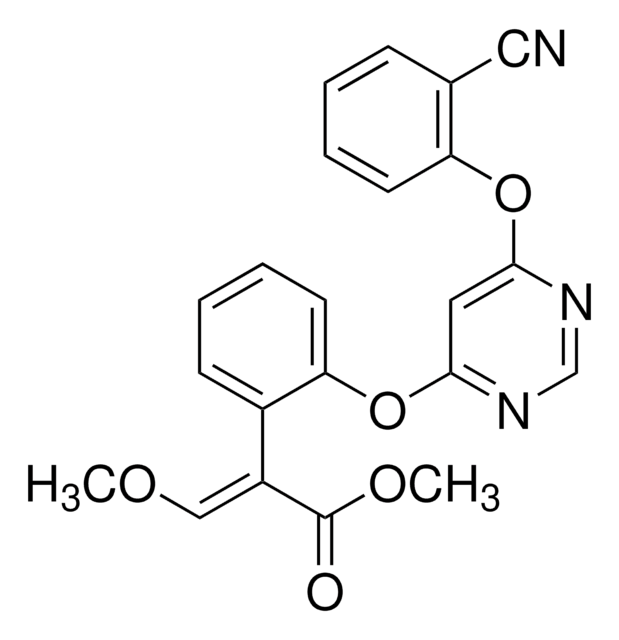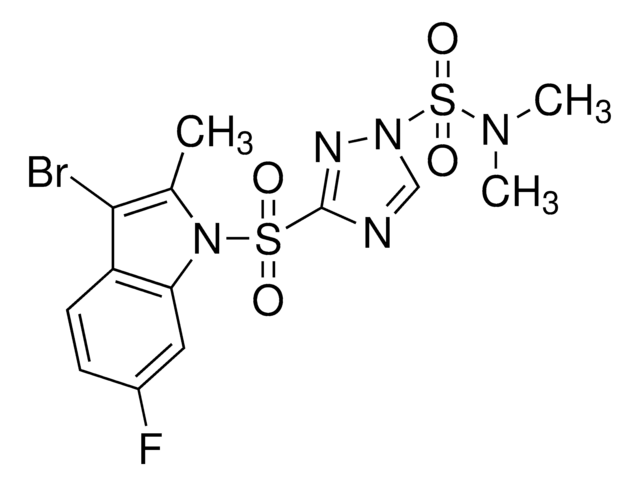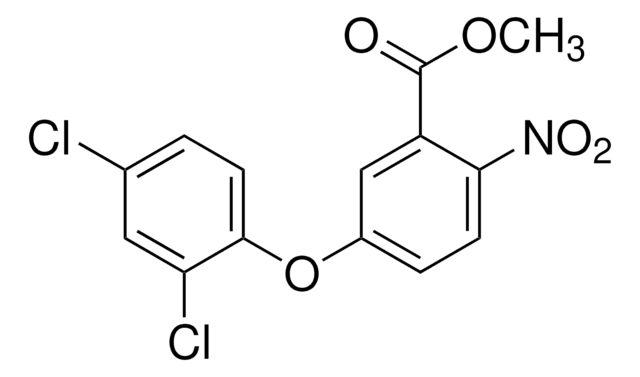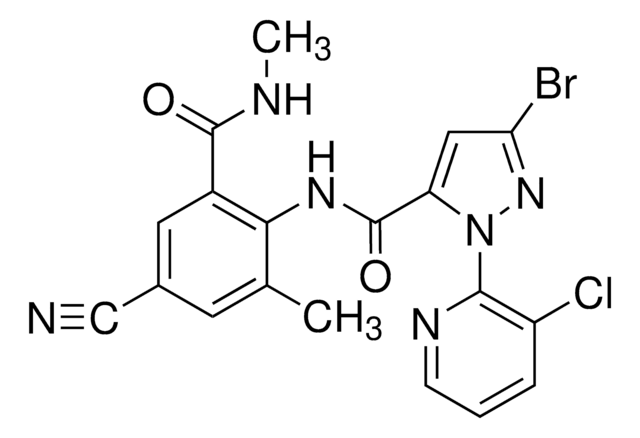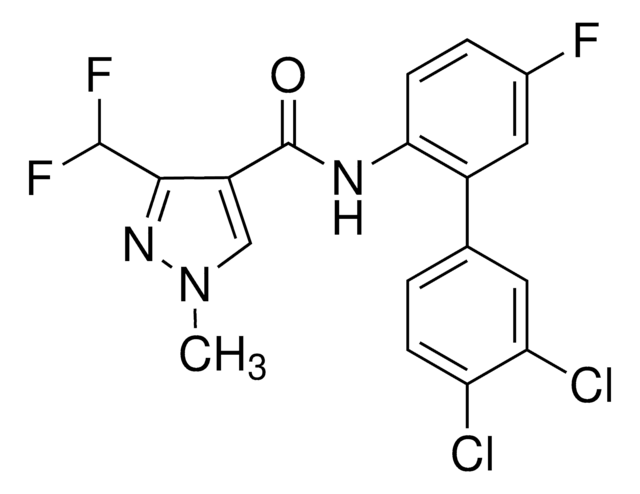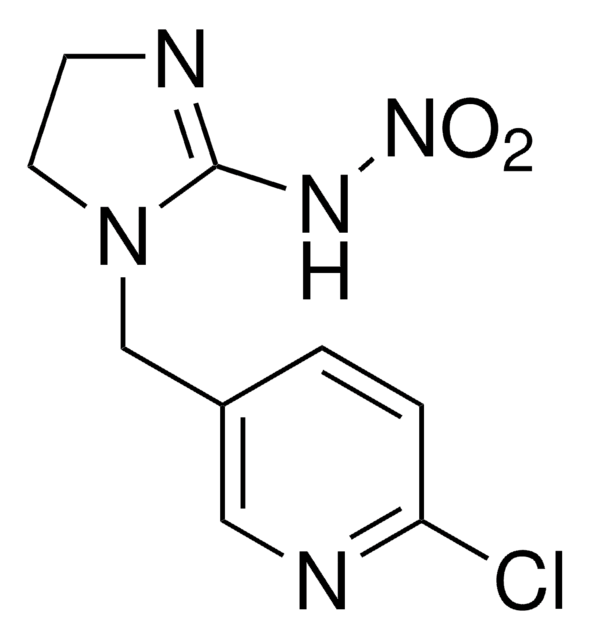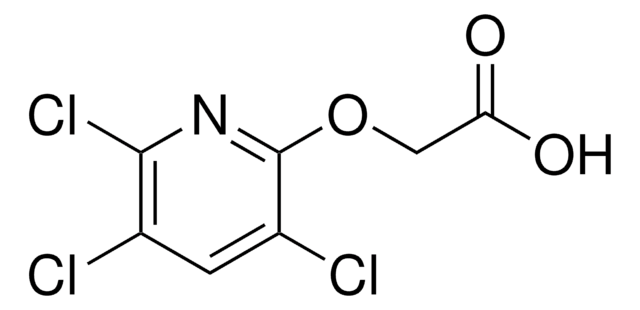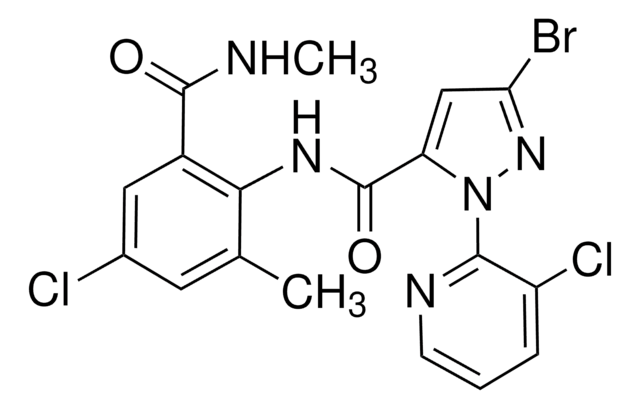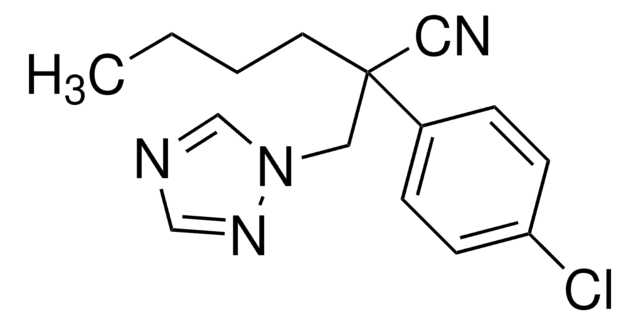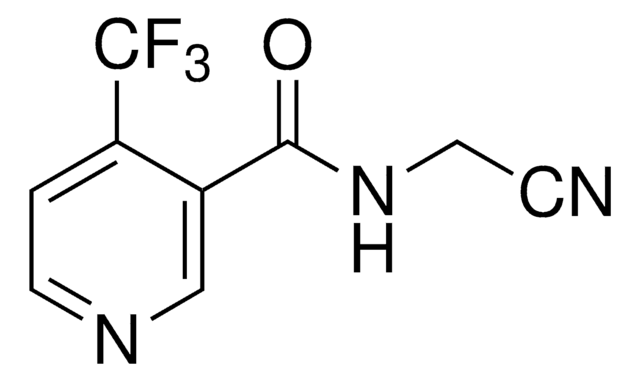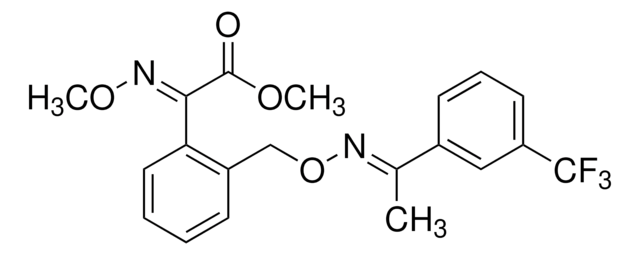32504
Bifenazate
PESTANAL®, analytical standard
Synonym(s):
N′-(4-Methoxybiphenyl-3-yl)hydrazinecarboxylic acid isopropyl ester
About This Item
Recommended Products
grade
analytical standard
Quality Level
product line
PESTANAL®
shelf life
limited shelf life, expiry date on the label
technique(s)
HPLC: suitable
gas chromatography (GC): suitable
application(s)
agriculture
environmental
format
neat
SMILES string
COc1ccc(cc1NNC(=O)OC(C)C)-c2ccccc2
InChI
1S/C17H20N2O3/c1-12(2)22-17(20)19-18-15-11-14(9-10-16(15)21-3)13-7-5-4-6-8-13/h4-12,18H,1-3H3,(H,19,20)
InChI key
VHLKTXFWDRXILV-UHFFFAOYSA-N
Looking for similar products? Visit Product Comparison Guide
General description
Application
Recommended products
Legal Information
Signal Word
Warning
Hazard Statements
Precautionary Statements
Hazard Classifications
Aquatic Acute 1 - Aquatic Chronic 1 - Skin Sens. 1 - STOT RE 2
Storage Class Code
11 - Combustible Solids
WGK
WGK 3
Personal Protective Equipment
Choose from one of the most recent versions:
Already Own This Product?
Find documentation for the products that you have recently purchased in the Document Library.
Customers Also Viewed
Protocols
LC/MS/MS Analysis of Pesticide Residues in Pistachios on the Ascentis® Express RP-Amide Column after QuEChERS Extraction
Our team of scientists has experience in all areas of research including Life Science, Material Science, Chemical Synthesis, Chromatography, Analytical and many others.
Contact Technical Service